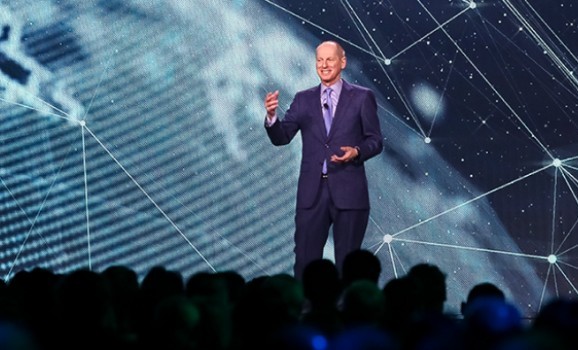CTA Blasts Pearl TV’s ‘Conflict of Interest’ Claims on NextGen TV Tuner Mandates
‘This is the NAB playbook: if consumers aren’t choosing your tech organically, demand the government make them,’ says CTA CEO Gary Shapiro

WASINGTON—In the wake of recent meetings where the National Association of Broadcasters and Pearl TV pushed the Federal Communications Commission for ATSC 3.0 tuner mandates, Gary Shapiro, the CEO and vice chair of the Consumer Technology Association, is aggressively pushing back on claims that consumer tech manufacturers have a conflict of interest in their opposition to new regulations that might speed the transition to NextGen TV.
“Last week, Pearl TV called CTA out by name and made the outlandish claim that we are driven by a ‘conflict of interest’ in opposing a forced transition to ATSC 3.0,” Shapiro wrote in a LinkedIn post. “They claim that smart TVs are now a competitive threat to broadcasting. I can honestly say that not once have I heard any CTA member raise this as a reason to oppose a mandate. We oppose mandates because they hurt American consumers by forcing them to buy something they don’t want … Our position is based on the importance of choice and the miracle of the marketplace—something broadcasters happily ignore as they squat on valuable spectrum they were loaned for free.”
“Irony alert: the very broadcasters crying ‘conflict’ are the ones lobbying the government to mandate a technology that could directly enrich them,” Shapiro added. “Let’s be clear: CTA supports innovation—not mandates. We’ve always opposed government forcing tech into products. But this is the NAB playbook: if consumers aren’t choosing your tech organically, demand the government make them. This isn’t new. Broadcasters have spent years begging the government to prop up their declining business— FM radio in phones, AM radio in cars. Declining demand isn’t market failure requiring government intervention— it’s the marketplace of consumers choosing better options.”
The big problem with the stalled ATSC 3.0 transition, Shapiro added, is that “broadcasters haven’t bothered to sell ATSC 3.0. Their half-hearted deployment of mostly redundant content is not luring consumers to value ATSC 3.0 … Where’s the marketing blitz? How much prime time advertising have they done on ATSC 3.0? What killer apps have they consistently deployed? What is the compelling reason for consumers to care?”
“The future of TV should be decided by consumers, not lobbyists,” he concluded. “If the broadcasters want ATSC 3.0 to succeed, they should stop wasting money on expensive lobbying campaigns for mandates and start creating content and services consumers value. Maybe the government should mandate more productive use of broadcaster spectrum so our nation can reduce the deficit move into the future.”
As previously reported, the broadcasters backing Pearl TV complained during a recent meeting with FCC staffers that TV-set manufacturers are “incentivized” to oppose ATSC 3.0 tuners because their FAST channels compete with broadcasters for ads and audiences.
Similar arguments were raised during a July 14 meeting with NAB and FCC Commissioner Olivia Trusty. “NAB also addressed the disingenuous and blatantly anticompetitive objections registered by certain players in the ecosystem that are clearly threatened by a competitive free video service available to consumers throughout the nation,” according to a letter from the NAB describing the meeting.
The professional video industry's #1 source for news, trends and product and tech information. Sign up below.
George Winslow is the senior content producer for TV Tech. He has written about the television, media and technology industries for nearly 30 years for such publications as Broadcasting & Cable, Multichannel News and TV Tech. Over the years, he has edited a number of magazines, including Multichannel News International and World Screen, and moderated panels at such major industry events as NAB and MIP TV. He has published two books and dozens of encyclopedia articles on such subjects as the media, New York City history and economics.

